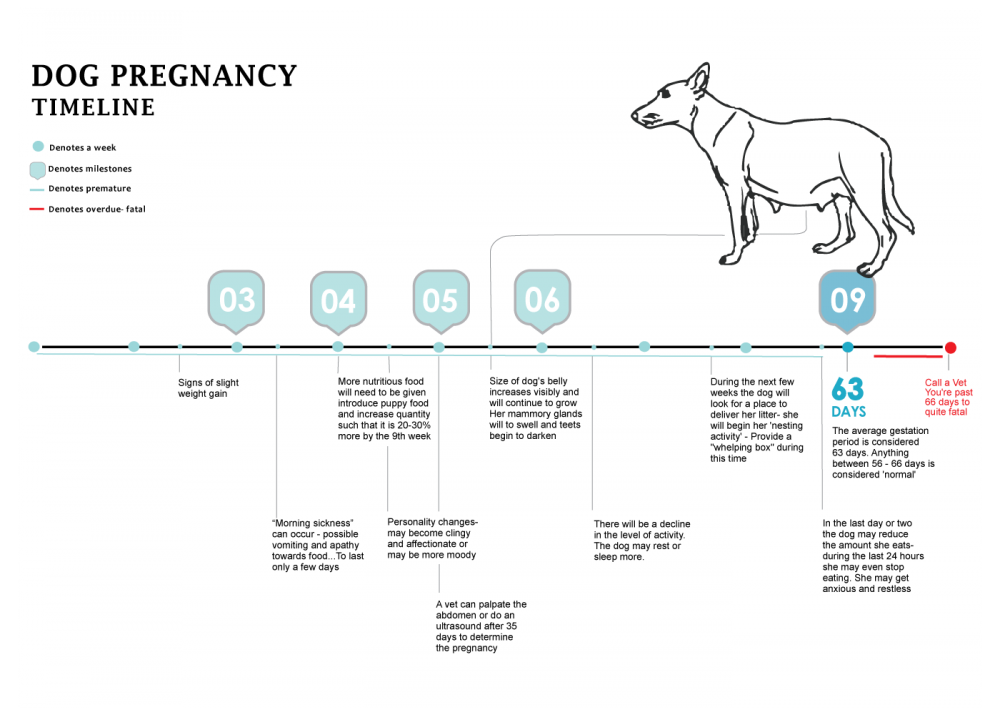Antimicrobial resistant infections can be lethal to immunocompromised dogs such as puppies and seniors. It is important that we use antimicrobials properly. The purpose of this article is to:
-
Provide strategies to help prevent development of resistant infections while keeping your dog’s health as the number one priority.
-
Highlight special considerations organized by life stages of the dog - from breeding and whelping to puppyhood to senior years.
-
Let's not be breeding super bugs when we are breeding dogs!


Some ages and stages are at
increased risk !
Breeding and Whelping
When puppies first come into the world, they are vulnerable, so it is important that we provide good healthcare to the puppies pre and post whelping. According to my interviewed connections in this area, some breeders will misuse antibiotics during the breeding and whelping stages, which can in turn create superbugs; thus, I coined the phrase ‘breeding through breeding.’ Some breeders worry about conditions such as endometritis and mastitis, so they will place their bitch on a course of antibiotics throughout their entire pregnancy and may even extend that through whelping and nursing stages. This is where we need to consider risks vs. benefits. Mastitis and endometritis are possible complications in breeding, but using antibiotics without signs of an infection can do more harm than good by negatively altering the bitch’s normal bacterial flora. The antibiotics commonly used to treat or prevent endometritis are fluoroquinolones, which are one of the more powerful, broad spectrum antibiotics and as such should be used sparingly. If symptoms of endometritis arise in the bitch, and she is having trouble conceiving, it is advised to seek veterinary advice and to confirm an infection with an endometrial biopsy prior to using antibiotics. Another thing to consider when breeding is to seek assistance from a veterinary theriogenologist, an individual who specializes in reproductive health, when problems are encountered. This board certified specialist will have completed a residency (advanced training) and may be able to provide you with additional options and specialized care than a general practitioner.
Before breeding, it is important to test the bitch and sire for infectious diseases such as Brucella canis that can cause devastating health issues and abortion of the litter. A simple test is all that is needed to avoid having a Brucellosis outbreak where the dogs are infected for life and generally euthanized. Ensure the bitch is dewormed and free of intestinal parasites prior to breeding as those can be given to the puppies via transmammary or transplacental transmission. The bitch and sire should be in good health and fully vaccinated prior to breeding. All of these good health practices can help to prevent disease in your dog, and limit the need for antibiotics.

original image source: http://dogsaholic.com/care/dog-pregnancy-stages.html
Early Puppyhood
During the first two weeks of life, neonatal puppies are highly immunocompromised, and it is essential for them to get maternal antibodies from colostrum of the bitch. Puppies receive these antibodies through nursing shortly after birth, and these antibodies ‘jump start’ their immune system. Another reason to keep the bitch off antibiotics during pregnancy is to avoid altering the normal bacteria that are present and antibodies that the neonates need to thrive. Antibiotics given to the bitch can be passed to the puppies via the placenta or nursing. This transfer of antibiotics is detrimental to neonates because it negatively affects their new and developing microbiome. A microbiome is the natural community of bacteria that lives inside the gut, in this case, of an individual. The microbiome is essential for developing a strong immune system. Additionally, when exposed to some types of antibiotics neonates can experience severe developmental issues. Hygiene is paramount at this stage since neonates are immunocompromised. Be sure to keep their living area clean, dry, and warm at all times.
Two Weeks to Six Months
At ages two weeks to six months, the puppy is slowly developing it immune system. During this stage they are not quite as immunocompromised as neonates, but are still at a heightened risk of acquiring infections. It is important to prevent these diseases so we can avoid both illness in our dogs and any need to treat infections with antibiotics. One of the most worrisome diseases that puppies can acquire is parvovirus. Being a virus, parvo cannot be treated with antibiotics, but sometimes antibiotics are used in the treatment due to concerns of secondary bacterial infection. The best way to combat parvo is through disease prevention via vaccinations and proper health care precautions. The first step to a healthy puppy is visiting your veterinarian to get on track with a deworming and vaccination schedule. Until puppies are fully vaccinated, they are not completely protected against diseases such as parvovirus. Be sure to limit contact to only known, healthy mature dogs for socialization, and avoid facilities such as dog parks, pet stores, and boarding kennels during this vulnerable time. Utilizing proper preventative care is essential to keeping your puppy healthy. Preventing diseases will lessen the need for antibiotics that can lead to resistant infections. Puppies are at a high risk for intestinal parasites, so it is important to follow the appropriate deworming schedule. One must utilize proper hang hygiene as many of these parasites are zoonotic, meaning they can be transmitted to humans. Properly socialize your puppy with other known, healthy dogs in a clean environment. Follow proper vaccination and deworming protocol as recommended by your veterinarian. When selling a puppy to new owner, educate the owner on proper healthcare, and make sure the owner has a veterinarian. Finally, do not use antibiotics unless the dog has a documented bacterial infection. Antibiotics can alter the puppy’s natural bacteria and upset their growth and development.
Adulthood
A healthy, adult dog with a well-developed immune system will be at lower risk for succumbing to illness from infectious diseases. Most adult dogs can fight off daily pathogens to which they are exposed because they have a diverse microbiome which leads to a strong immune system. However, frequent use and misuse of antibiotics will alter this microbiome, and make it easier for the dog to get sick. It is important to continue to be prudent with antimicrobial use through a dog’s adulthood. Getting a culture and avoiding empirical use of antibiotics can help prevent unnecessary use of antibiotics for infections that are self-limiting. Understanding risk is important. It is good to know that public environments such as dog shows or dog parks expose dogs to many diseases just as a human could pick up from an airport or a child from daycare. When using one of these facilities, look for proper hygiene protocols such as regularly cleaned bowls with fresh water and be sure to follow hygiene protocols, such as immediately cleaning up feces, washing your hands and not allowing your dog to have contact with sick dogs. “Self-treating” your dogs with antibiotics without a veterinarian’s prescription and direction is very dangerous. For example, treating your dog with metronidazole after a show to clear up ‘stress diarrhea’ is unnecessary and contributes to antimicrobial resistance. When dogs are sick, keep them in separated from other dogs (isolated) and do not go to shows or other public places until approved by your veterinarian. Other examples of inappropriate use of antibiotics in dogs is using tetracycline to clear tear staining and Tylan Powder added to water to prevent stress diarrhea. These practices are medically unnecessary and are putting immunocompromised dogs such as puppies and seniors at risk of acquiring the superbugs you are breeding.
Seniors
Senior dogs, like puppies, do not have as strong of an immune system as adults do; therefore, extra care must be taken to ensure their health. Be sure to keep up on preventative care and continue to utilize proper hygiene and limit contact between other, unknown dogs. When a dog has signs of illness, go to a veterinarian and ask for a culture before giving your dog a course of antibiotics.
In conclusion, the best way to combat antimicrobial resistance in dogs is to follow these steps.
-
Prevent diseases through biosafety and vaccination protocols.
-
Never medicate your dog with antibiotics without a veterinarian’s prescription and advice.
-
Utilize diagnostic technology such as culture to confirm a bacterial infection prior to treatment.
-
Comply to both the drug duration and dosage instructions.
-
Finally, educate your clients and future pet owners on healthcare of their new pet.
Let's look out for their health ..... and ours! 

This article is part of the IPFD Student Project 2017 by Ariel Minardi.
For an overview of her project and links to other material on Antimicrobial Resistance (AMR) and Prudent Use of Antibiotics see:
IPFD Student Project 'B.A.R.K. | Bacterial Antimicrobial Resistance Knowledge' - Overview
References:
Barlow, J. "Mastitis therapy and antimicrobial susceptibility: a multispecies review with a focus on antibiotic treatment of mastitis in dairy cattle." Journal of mammary gland biology and neoplasia. 2011.
Robinson, Wyatt. "Dog Pregnancy Stages: The Joyous Experience of Dog Birth." DogsAholic. N.p., 14 Nov. 2016. Web. 22 June 2017.
Ghearing, N. "Use of Antibiotics in Breeding and Showing." Telephone interview. 10 June 2017.
Verstegen, J., G. Dhaliwal, and K. Verstegen-Onclin. "Mucometra, cystic endometrial hyperplasia, and pyometra in the bitch: advances in treatment and assessment of future reproductive success." Theriogenology. 2008.
 Donate
Donate





Recommended Comments
Join the conversation
You can post now and register later. If you have an account, sign in now to post with your account.
Note: Your post will require moderator approval before it will be visible.